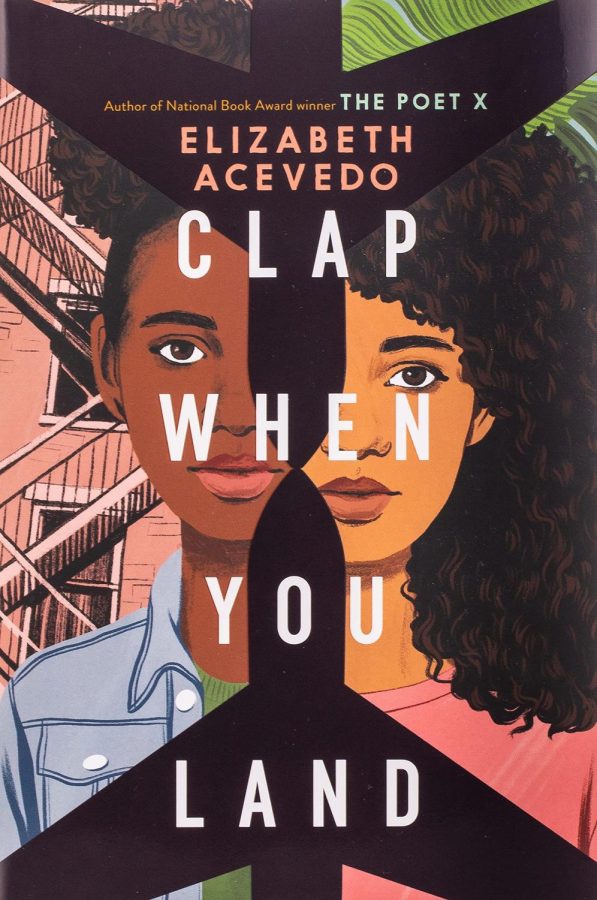Grief is Two-Faced in “Clap When You Land”
March 7, 2022
On the coast of the Dominican Republic, Camino eagerly awaits her father’s annual return home. In the hustle and bustle of New York City, Yahaira says goodbye to her own dad who is preparing to fly overseas for business like he does every year. When his plane crashes unexpectedly, both girls mourn the loss of a father.
It is hard enough to lose a parent, but it is even worse to lose their assumed perception of him in the process. How could one man have been two fathers? Camino knew his doting love and playful stories, Yahaira his endless superstitions and stifling expectations. His death sparks a curiosity that leads the pair to question everything they thought they knew so well.
When all seems lost, the sisters discover each other. Even though they are the exact personification of their father’s infidelity, they are inevitably drawn to one another and to the pain they share. Together, the girls must unravel the buried secrets of the dead man who kept them from each other.
Apparently, it is a crime to judge a book by its cover, but I am quite the rebel. Besides, one of the many reasons why “Clap When You Land” caught my eye was the thoughtful jacket art. Both sisters appear as two halves of a whole, symbolically severed by the plane that killed their father.
Elizabeth Acevedo is a New York Times Bestselling author, and the style of this book proves why. Her storytelling is addictively vibrant, layering elegant whimsy on a timeless perspective. Vivid world building entices readers from the very first page and encourages them to dissect the characters’ psyches to their heart’s content.
Camino and Yahaira’s points of views alternate every few chapters, which proved to be confusing in the long run. Setting this book down for longer than an hour required a recap upon return, lest the reader forget who is speaking. On the other hand, the division allows for clear connections between the complimentary stories.
Being that this text centers around loss, the in-verse writing is cleverly applied. This lyrical style magnifies even the tiniest detail of daily life, which is an appropriate reflection of the embellishing powers of sorrow. Every meltdown is acutely described and the delicate representations of anguish are heartbreakingly beautiful. The five stages of grief are depicted with refreshing innovation. Acevedo renovates the classic portrayal of mourning, creating something that is unmistakably hers.
In the same vein, the narrative is emotionally rich to the point where reading it occasionally feels like swimming upstream. The constant despair can be hard to digest and even dampens the effect of the climax. Irrational emotional pacing sets the plot on an unconventional trajectory. Still, there is meaning lying behind this uncensored feeling. By purposefully calling attention to the chaotic realities of Camino and Yahaira’s lives, the writer reminds readers of the beauty in imperfection. She does not waste time by pretending their tragedy can be neatly sugar coated. There is no happily ever after when families are torn apart. As a matter of fact, the biggest mistake readers could make before diving into this book is expecting to remain within their comfort zone. This was never designed to be a light read. Instead, it was engineered to challenge the very foundation of one’s thoughts and feelings, just like any magnificent work of art.
The ending lacks total closure, which is frustrating yet affirming since the author trusts in her readers’ optimism. They must pursue the same hope in new beginnings that Camino and Yahaira cling to, creating a gorgeous moment of community which permeates through the very last words.
This book of poems is everything except simple. “Clap When You Land” valiantly explores the multi-dimensional natures of loss, family and truth.































